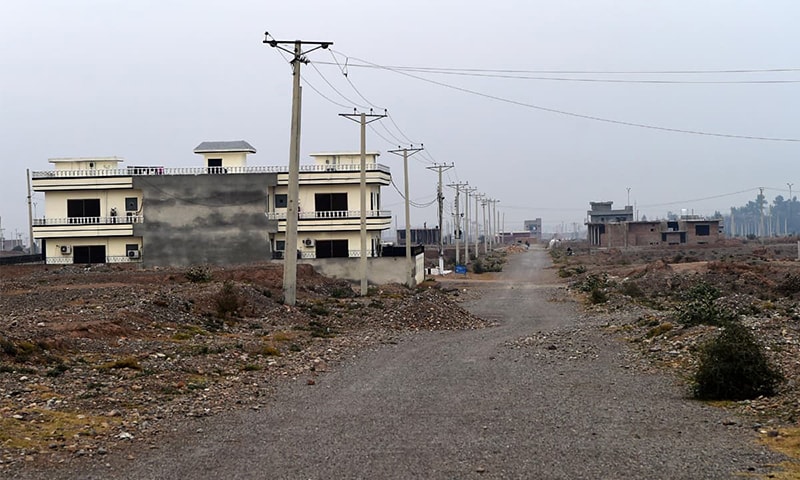Housing societies in Pakistan, such as Al Ghani Garden, play a vital role in providing organized living spaces to the growing urban population. These societies offer a structured environment that ensures residents have access to necessary amenities, security, and a sense of community. To ensure smooth functioning, laws govern their establishment and management, ensuring proper planning and regulation. A strong legal framework protects the interests of residents, developers, and investors, fostering a reliable and secure atmosphere for all involved. This article explores the rules and regulations that shape housing societies in Pakistan.
Historical Background
The concept of housing societies in Pakistan has evolved over decades. In the early years, cooperative societies were the primary model. They provided a structure for joint ownership and community management. Over time, urbanization led to the need for private housing schemes. Legal frameworks grew to address these changes. Today, a mix of cooperative and private societies exists, supported by specific laws.
Key Laws Governing Housing Societies
Cooperative Societies Act, 1925
This act is the foundation for cooperative housing societies in Pakistan. It outlines how societies should be registered. It also details the roles and responsibilities of members. Dispute resolution processes are clearly defined. The act ensures transparency in society operations. It remains a cornerstone for many cooperative societies.
Punjab Housing and Town Planning Agency Ordinance, 2002
This ordinance focuses on the development and regulation of housing in Punjab. The agency approves housing schemes and enforces building regulations. It also oversees compliance with zoning laws. The ordinance promotes affordable housing. It supports the regularization of informal settlements. It plays a key role in urban planning.
Punjab Private Housing Schemes Rules, 2020
These rules govern private housing schemes in Punjab. They ensure that developers meet specific requirements. This includes land verification, infrastructure access, and environmental planning. Developers must also provide basic amenities. A portion of the land is reserved for affordable housing. This ensures inclusivity for lower-income families.
National Housing Policy, 2001
This policy addresses the housing shortage across Pakistan. It promotes both public and private partnerships. The goal is to make housing affordable and accessible. The policy also encourages sustainable development. It aims to regularize slums and improve living conditions. It provides a vision for housing growth in Pakistan.
Local Government Ordinances and Building Regulations
Local governments have their own laws affecting housing societies. These include building codes and zoning regulations. They ensure proper land use and safe construction practices. Local governments also approve housing schemes. They monitor compliance with local development standards. These regulations ensure orderly urban growth.
Supporting Regulations
Environmental Protection Laws
Housing societies must follow environmental regulations. Developers conduct Environmental Impact Assessments (EIAs). These assess how projects affect the environment. Developers also take steps to reduce negative impacts. Compliance with environmental laws ensures sustainable development. It protects natural resources and public health.
Building Codes and Safety Standards
Building codes ensure safe construction in housing societies. These standards cover everything from structural integrity to fire safety. Adhering to these codes prevents accidents and ensures durability. Safety standards protect residents and improve quality of life. Compliance is mandatory for all developers.
Land Ownership Verification
Verifying land ownership is a critical step in real estate development. Developers must ensure clear land titles. This reduces disputes and ensures legal transactions. Proper documentation builds trust between buyers and developers. It also secures investments for all stakeholders.
Challenges in the Legal Framework
Implementation Gaps
One major issue is the inconsistent enforcement of laws. Some developers bypass regulations for quicker approvals. This leads to unauthorized developments. These gaps harm residents and disrupt urban planning. Stronger enforcement is needed to address these issues.
Coordination Issues
Housing societies often deal with multiple regulatory bodies. Poor coordination creates confusion. Overlapping responsibilities slow down approvals. Developers face delays, and projects suffer. Better coordination between authorities can improve efficiency.
Legal Disputes
Land ownership disputes are common in Pakistan. Conflicts arise over unclear titles or jurisdiction. These disputes delay projects and create mistrust. A streamlined legal process can help resolve these conflicts quickly. Clear laws can also prevent disputes from arising.
Recommendations for Improvement
To strengthen the legal framework, implementation must improve. Authorities should enforce laws consistently. Coordination between agencies is also crucial. This can speed up approvals and reduce confusion. Transparency in land transactions can build trust. Developers must comply with regulations for sustainable growth. Policymakers should update laws to match modern needs. Learn more about housing societies in Pakistan.
Conclusion
The legal framework for housing societies in Pakistan ensures order and fairness. It protects the interests of all stakeholders. While challenges exist, improvements are possible. By enforcing laws and fostering cooperation, housing societies can thrive. A strong framework benefits residents, developers, and the nation. Compliance is the key to sustainable and organized development.



